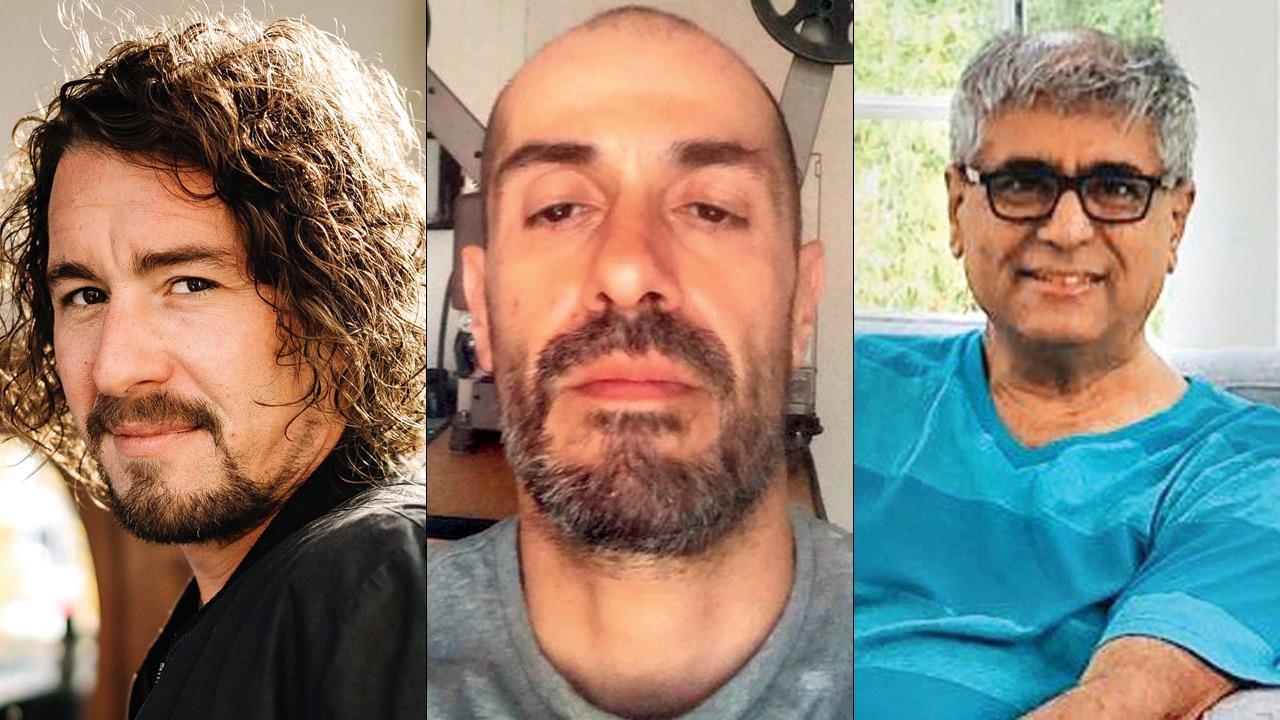An event this week will celebrate how performing artistes from across the globe joined hands to overcome the travails of the pandemic

Matthias Strobel, Vassily Bourikas and Mahesh Dattani
It’s now been so long since the pandemic began that some of the adaptations that performing artistes made to overcome the challenging situation, are starting to take on a sense of permanence. One of these is cross-border collaborations, which flourished over the past year because people from across oceans found themselves in the same choppy waters. And an event this week will highlight how global artistes joined forces using technological hacks, among other things. Its aim is to make sense of how these collaborations came about so that, going forward, people can use the same techniques to keep virtual shows alive even when things get back to normal.
ADVERTISEMENT
Harkat Studios is organising the workshop series after receiving a grant from the Asia Europe Foundation, which promotes cultural alliances between the two continents. Harkat co-founder Michaela Talwar tells us that the line-up includes a masterclass by noted playwright Mahesh Dattani, adding, “He used to work a lot with theatre groups from the US and UK even before the pandemic, and continued doing the same when last year’s lockdown began. It’s been an incredible learning experience for him, and he will share tips and hacks for actors so that they can gain the same knowledge.”
Michaela Talwar
Then there’s a hands-on session for musicians that Matthias Strobel of Music Tech Germany, an association that works in the field of music technology, will conduct. This will be followed by a session titled Demystifying Analogue: Celluloid Making from Anywhere, hosted by Greek filmmaker Vassily Bourikas, who will screen a film he made on a moving train and discuss the techniques he used for it. The entire event will thus span across artistic disciplines since, Talwar tells us, Harkat Studios is a space that is dedicated to not just theatre, but the performing arts as a whole.
While 80 to 90 per cent of these performing artistes will return to physical shows when the pandemic is over, Talwar feels that nearly 20 per cent will keep performing digitally if that medium makes more sense to them for a particular project. That’s what the new order will entail, she feels, because between March 2020 and August 2021, remote collaborations have been a silver lining for the artistic community, and it’s one that won’t fade away in a jiffy.
On: August 12, 11 am
Log on to: insider.in
 Subscribe today by clicking the link and stay updated with the latest news!" Click here!
Subscribe today by clicking the link and stay updated with the latest news!" Click here!






